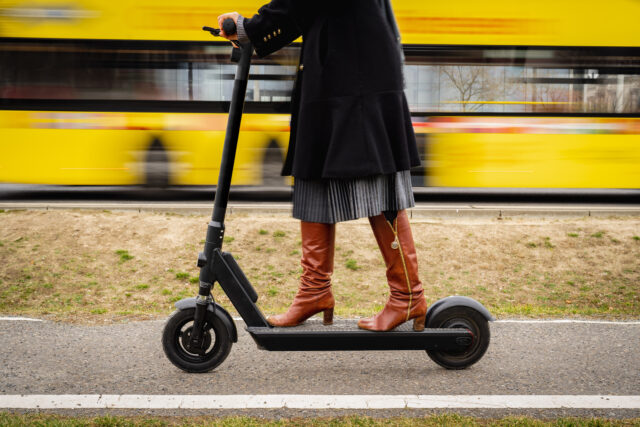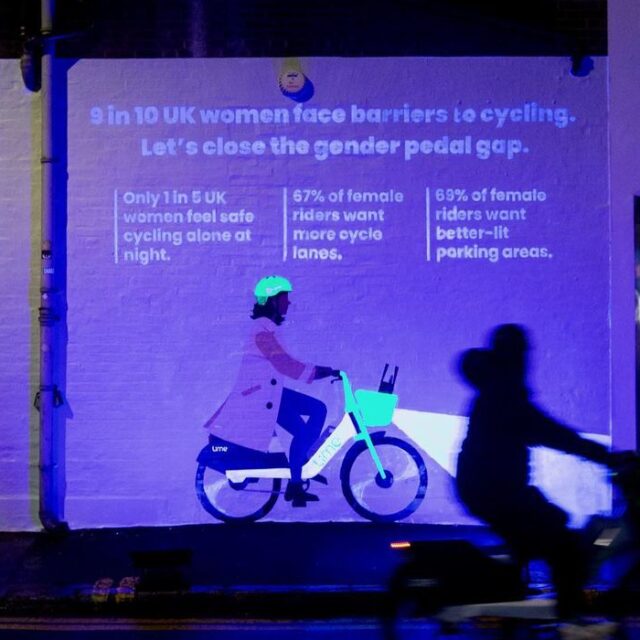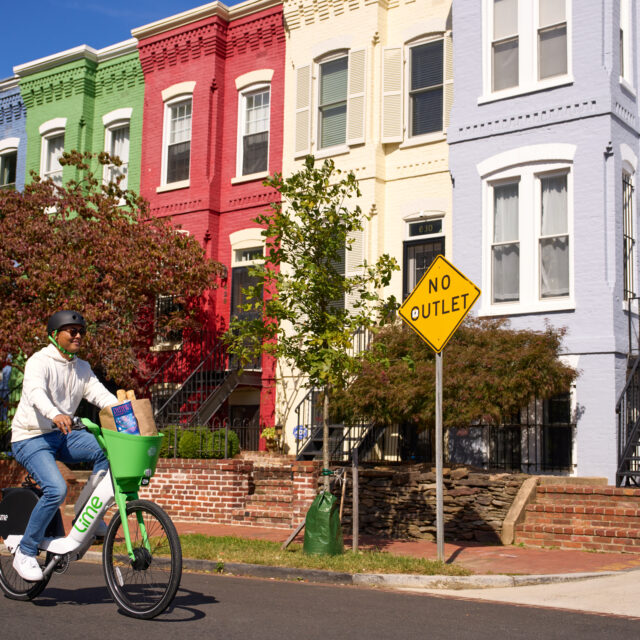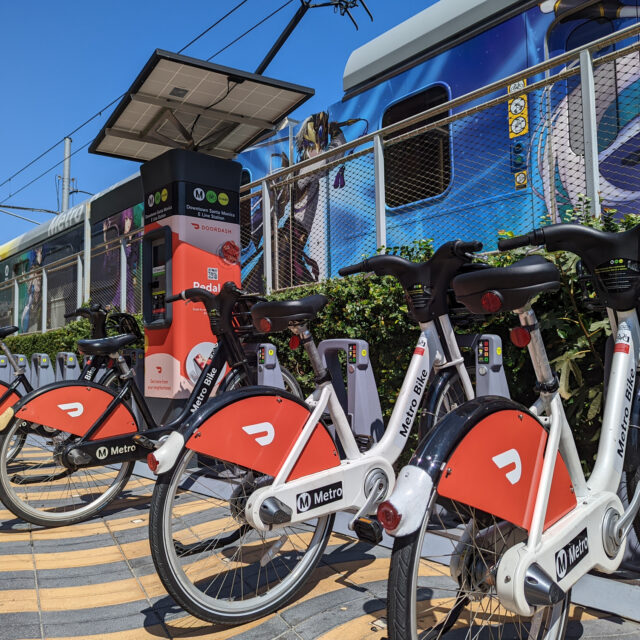Shared E-Scooters As a Last-Mile Transit Solution?
by Kiran Herbert, Communications Manager
December 5, 2023
Travel behavior in Washington D.C. and Los Angeles sheds light on how e-scooters and public transit can best work together.

A new study, to be published in the January 2024 issue of Travel Behavior and Society, examines e-scooters as a last-mile solution to transit. By collecting travel behavior insights from Los Angeles and Washington D.C., researchers were able to provide insights into the extent of the last-mile problem for transit use, explore the viability of shared e-scooters as a solution, and examine key factors that influence transit and shared micromobility integration (as well as identify the main obstacles to this integration).
Highlights from the research:
- Shared e-scooters have a high potential to be a last-mile solution to transit.
- Intention to use shared e-scooters as a last-mile solution often does not translate into actual behavior due to a variety of barriers.
- Women and older adults are less likely to adopt shared e-scooters for transit connectivity.
- People of color use shared e-scooters to connect with transit more frequently.
- Income is not a determinant of using shared e-scooters for transit connections.
The study’s survey results found that the last-mile problem has deterred transit use among about 70% of respondents. A majority (over 60%) of transit users have considered shared e-scooters to travel to transit stops too far to walk to. However, survey results indicate frequently, this consideration does not translate into actual behavior due to a variety of barriers, including things like a lack of available e-scooters, on-street infrastructure, or affordable pricing.
Addressing these issues is crucial to promoting shared e-scooter usage as a last-mile solution to transit. The researchers conclude that policymakers could introduce bundled fares and integrated payment, promote e-scooter safety through close collaboration with operators, increase e-scooter availability at transit stops, and improve bike lane infrastructure connecting to transit. Making these changes would encourage more people to use e-scooters to connect to transit, ultimately bolstering public transportation ridership, increasing transportation security, and helping to reduce congestion from single-occupancy vehicles.
The Better Bike Share Partnership is funded by The JPB Foundation as a collaboration between the City of Philadelphia, the National Association of City Transportation Officials (NACTO), and the PeopleForBikes Foundation to build equitable and replicable bike share systems. Follow us on LinkedIn, Facebook, Twitter, and Instagram, or sign up for our weekly newsletter.



